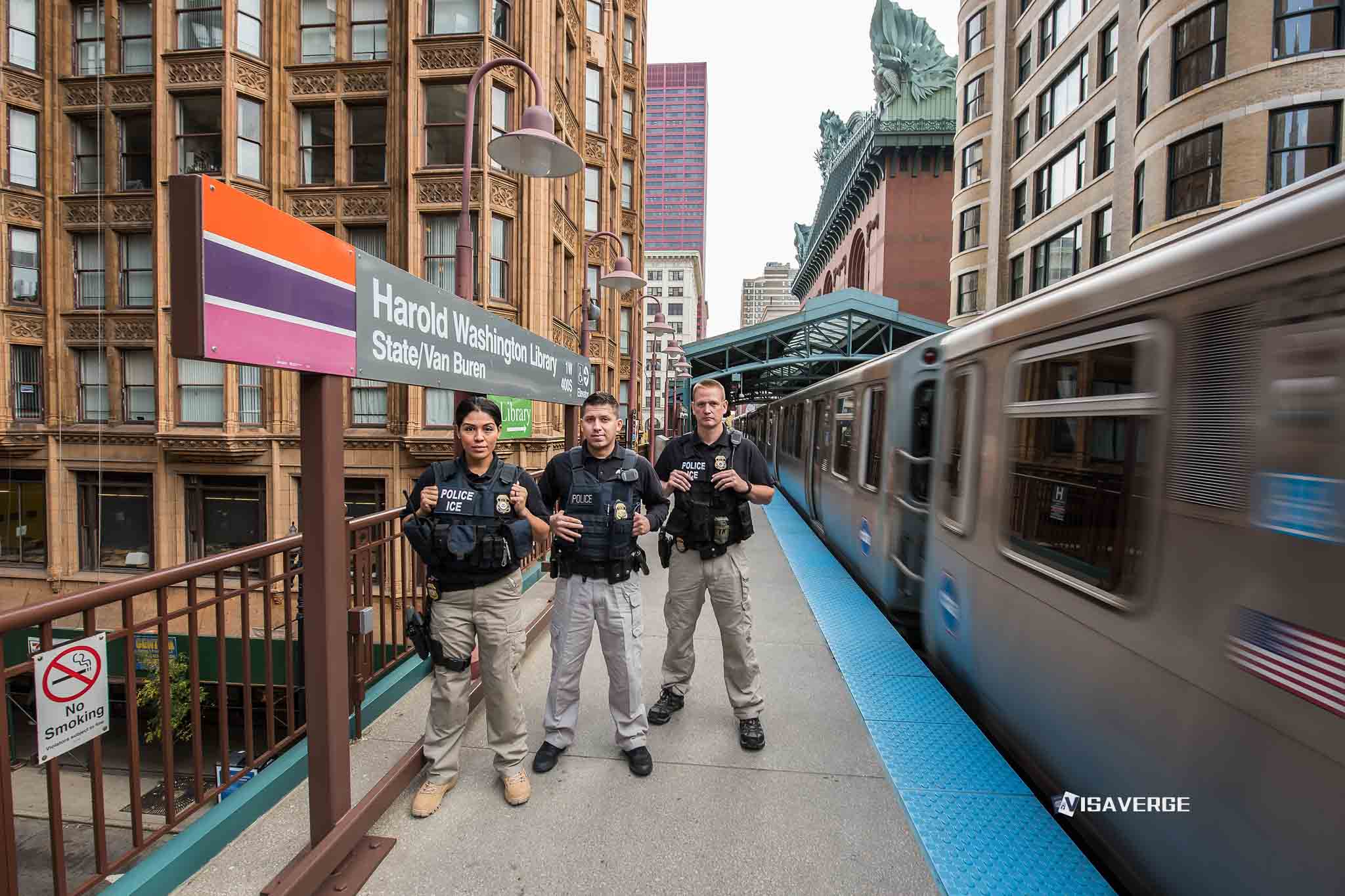Key Takeaways
- Canada’s new immigration rules, effective January 31, 2025, allow officials to revoke study permits, work permits, and other temporary documents.
- Grounds for revocation include false information, criminal history, or legal inadmissibility, tightening compliance for students and workers, notably from India.
- Spousal work permit restrictions, SDS program suspension, and stricter financial requirements add challenges for international applicants starting January 2025.
Canada’s updated immigration rules, which widen the powers of immigration officials to revoke study permits and work visas, could have seismic effects on thousands of Indian nationals pursuing education or employment there. The changes, effective January 31, 2025, aim to strengthen the management of temporary immigration programs and address border security challenges. As reported by VisaVerge.com, these updates mark a shift in Canada’s immigration policies, with particular implications for temporary residents, including students and workers.
Under the revised regulations, immigration officials can cancel temporary residency documents such as study permits, work permits, temporary resident visas (TRVs), and electronic travel authorizations (eTAs). Some of the key justifications for revocation include cases where applicants provided false information, have a history involving criminal activities, or are deemed inadmissible due to other legal concerns. In simpler terms, this measure closes a loophole that previously allowed individuals who no longer qualified to maintain their immigration status. The amendments intend to enhance the integrity of the temporary immigration system and ensure compliance with set regulations, but they also introduce significant risks for affected populations.

For India 🇮🇳, this legal update hits particularly hard because Indian nationals are the largest demographic among study permit and work visa holders in Canada. In fact, government statistics for early 2024 identified India alongside China 🇨🇳 as having the highest number of non-compliant study permit holders. This development comes on the heels of incidents involving fraudulent acceptance letters and cases of international students overstaying their permits. As a result, the authorities have increased the scrutiny of applications.
Concern has also emerged regarding the numbers. For instance, in 2025, Canada aims to issue 437,000 new study permits, and with stricter monitoring mechanisms in place, misrepresentation or non-compliance could lead to immediate revocation. This follows the Canadian government’s steady push to tighten the requirements for temporary residents as part of a broader three-year immigration reform plan extending from 2025 to 2027. For students and workers, such moves—while aimed at tackling fraudulent activities—generate uncertainty about the stability of their immigration status.
One key concern has been the governmental notices sent in November 2023 to many Indian nationals in Canada, asking them to resubmit study permits and accompanying documents, even in cases where students were already holding valid visas with multiple years of authorization. The notifications prompted confusion and fear within the student community. Immigration, Refugees and Citizenship Canada (IRCC) later clarified that these were standard compliance checks. Canada’s international student compliance regime allows designated learning institutions to perform biannual verifications on students’ enrolment statuses. Though touted as routine, such rigorous audits suggest a heightened focus on enforcement.
The economic impact of these immigration rules also warrants detailed examination. Universities and colleges in Canada depend heavily on tuition revenue from international students—most notably Indian students—who contribute substantially to keeping institutions financially viable. A more restrictive approach to study and work permits creates ripple effects, not only for individuals aiming to build careers in Canada but also for educational infrastructure that has flourished under robust foreign enrolment. Similarly, industries reliant on temporary workers are bracing for potential workforce shortages as qualification criteria tighten.
Adding further complexity, the government has introduced a cap on international students to ease housing pressures exacerbated by increasing demand. This cap, combined with an increase in the minimum financial support requirement to $20,635 (Canadian dollars) beyond tuition and travel costs, raises the stakes for prospective applicants. Moreover, eligibility rules under the Temporary Foreign Worker Program are being reassessed with stricter criteria, signaling a comprehensive tightening of policies for both students and workers.
The situation for spousal open work permits adds an additional layer of challenge for Indian families. Starting January 21, 2025, these permits, which previously allowed spouses of international students or workers broad opportunities to accompany their partners, will be limited to those whose partners are enrolled in specific programs or employed in designated sectors. Such restrictions disrupt family unification and may deter potential applicants who plan longer-term stays.
These updates are compounded by the discontinuation of the Student Direct Stream (SDS) program, which until November 2024 expedited study permit applications from certain countries, including India. The suspension of SDS has increased study permit processing times from two weeks under SDS to over eight weeks. Work permits similarly face delays, with processing timelines now averaging nine weeks. Though high-skilled workers may still benefit from the Global Skills Strategy (GSS), which promises a two-week processing period for eligible jobs, this option addresses only a narrow section of applicants.
Canada’s shifting immigration targets offer additional insight into the larger policy framework driving these changes. The new three-year plan reduces immigration numbers significantly. For permanent residency, the country intends to admit 395,000 new entrants in 2025, down by 105,000 from earlier forecasts. Temporary resident figures are also set to decline, with a planned reduction from 7% to 5% of Canada’s population by 2027. This translates to admissions of 445,901 individuals in 2025, slightly decreasing further in 2026 before an anticipated modest increase in 2027.
This restrictive approach seeks to address several domestic pressures, such as housing shortages and strained public resources. The federal government believes fewer temporary residents will alleviate the demand for housing, particularly in urban areas. Additionally, by limiting the flood of international students, decision-makers aim to stabilize local economies stretched thin by rising populations.
The far-reaching consequences of these changes reflect both systemic challenges and evolving priorities for Canada’s immigration policymakers. Current and prospective Indian students and workers must carefully navigate their options under this evolving framework. For instance, maintaining meticulous compliance with document requirements is more critical than ever. Applicants should be prepared for more frequent verification requests, such as those related to enrollment records and proof of financial stability.
Immigration officials now also have the authority to assess whether applicants are likely to depart Canada after their authorized stay. If there are doubts, this could justify revocation of visas or permits. Additionally, cases where administrative errors led to the issuance of a visa can also face cancellation under these stricter rules.
The IRCC emphasizes that its goal is to uphold the credibility of Canada’s immigration programs while addressing abuse or misuse of its systems. As Canada works to balance welcoming skilled individuals with securing the integrity of its programs, those at risk of administrative intervention should seek immediate guidance from qualified legal experts to understand their rights and possible remedies. To access more detailed information about Canada’s latest regulations and updates, consult Canada’s official immigration website.
In summary, the introduction of expanded powers to revoke temporary residence documents signals a new era for Canada’s immigration policies. The changes have significant ramifications for international students and workers, particularly Indian nationals. From heightened eligibility criteria to stricter oversight mechanisms, these shifts point toward a system more intent on regulating migration. While this enhances the functionality and fairness of Canada’s immigration programs, it also brings added layers of complexity and uncertainty for individuals seeking to study, work, or settle in the country. Compliance, adaptability, and advanced planning remain critical for navigating this evolving terrain.
Learn Today
Study Permit → A government-issued document allowing international students to study at designated institutions in Canada for a specified duration.
Temporary Resident Visa (TRV) → A visa that allows foreign nationals to enter Canada temporarily for purposes like study, work, or tourism.
Spousal Open Work Permit → A permit allowing spouses of international students or workers to work in Canada without a job-specific employer.
Student Direct Stream (SDS) → A now-suspended program that expedited study permit applications for students from specific countries, including India.
Temporary Foreign Worker Program → A Canadian program facilitating the entry of foreign workers to address short-term labor shortages in specific industries.
This Article in a Nutshell
Canada’s tightened immigration rules, effective January 2025, grant officials sweeping powers to revoke study and work permits for misrepresentation or non-compliance. Indian nationals, heavily represented among temporary residents, face heightened scrutiny. While aimed at curbing fraud and boosting system integrity, the changes introduce uncertainty, reshaping opportunities for students, workers, and their families in Canada.
— By VisaVerge.com
Read more:
• Canada Tightens Immigration Rules, Study and Work Permits at Risk
• Canada Unveils Plan to Lower Immigration Numbers Over Next Three Years
• Canada Names Jalisco New Generation Cartel, Others as Terror Groups
• Indian Students Face Uncertainty as Canada Tightens Immigration Rules
• Indian Students in Canada Face Uncertainty Amid Tougher Visa Rules













